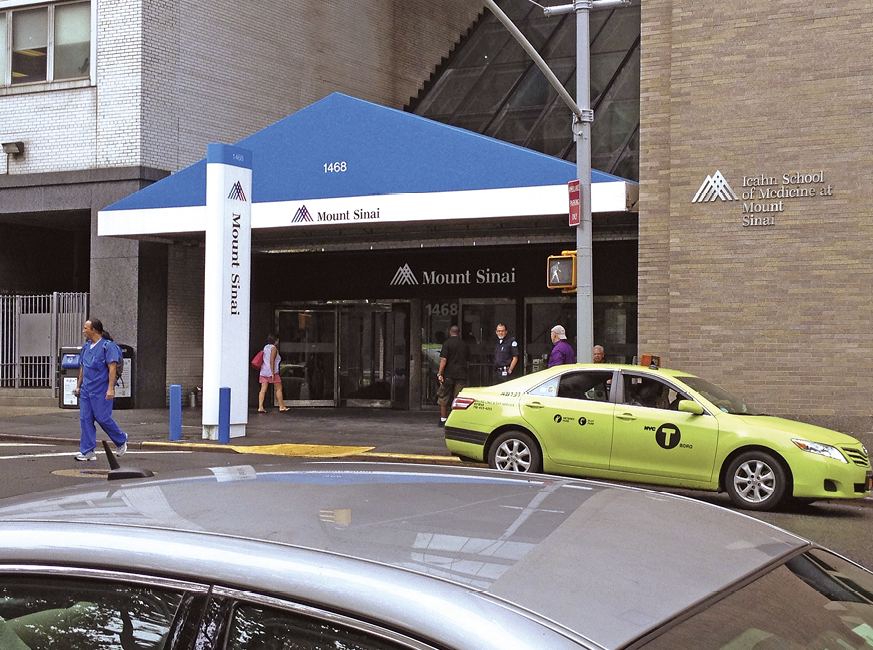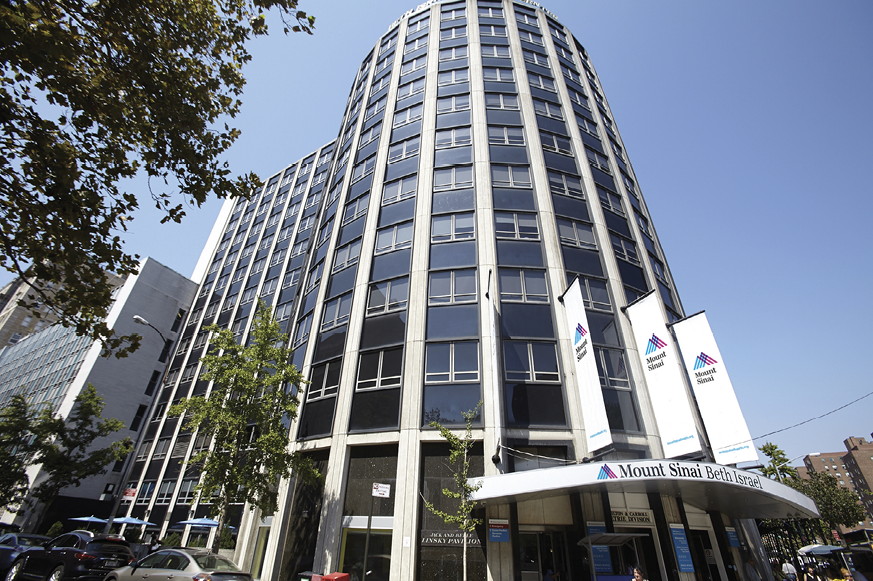- Home
- Media Kit
- MediaJet
- Current Issue
- Past Issues
- Ad Specs-Submission
- Ad Print Settings
- Reprints (PDF)
- Photo Specifications (PDF)
- Contact Us
![]()
ONLINE
![]()
ONLINE

A Holistic Approach
Editors’ Note
Prior to her current role, Margaret Pastuszko served as Executive Vice President, Chief Operating Officer, and Chief Strategy Officer where she led Mount Sinai’s commitment to performance and process improvement and the identification of opportunities for investment and resource optimization. She began her career at Mount Sinai in 2001 as Associate Dean of Operations for the Mount Sinai School of Medicine and then transitioned to the role of Vice President for Business Planning at The Mount Sinai Medical Center. Before joining Mount Sinai, she served as a Divisional Administrator and Practice Manager of Internal Medicine at Temple University Hospital. She also worked as a consultant with APM Management Consultants and, later, with CSC Healthcare. Pastuszko earned a bachelor’s degree in economics with a concentration in multinational management and international finance and an MBA with a major in healthcare management and economics from The Wharton School of the University of Pennsylvania.
Institution Brief
Mount Sinai Health System (mountsinai.org) encompasses the Icahn School of Medicine at Mount Sinai and eight hospitals, as well as a large and expanding ambulatory care network. The eight hospitals – Mount Sinai Beth Israel, Mount Sinai Brooklyn, The Mount Sinai Hospital, Mount Sinai Queens, Mount Sinai St. Luke’s, Mount Sinai South Nassau, Mount Sinai West, and New York Eye and Ear Infirmary of Mount Sinai – have a vast geographic footprint throughout the New York metropolitan region. The Mount Sinai Hospital is ranked number 14 in the nation by U.S. News & World Report and ranked in the top 20 nationally in eight medical specialties in the 2019-20 “Best Hospitals” guidebook. The New York Eye and Ear Infirmary of Mount Sinai is also ranked nationally in ophthalmology.

Entrance to the Icahn School of Medicine at Mount Sinai
Mount Sinai Health System is a purpose-driven organization with a long history of supporting its employees, patients, and communities. How do you define Mount Sinai Health System’s purpose and how is purpose at the foundation of Mount Sinai Health System’s culture?
Mount Sinai’s purpose is to advance and innovate care for all of the communities that we serve, to teach the next generation of physicians and caregivers, and to bring to market new discoveries. We created an internal motto which states; we welcome and care for our patients and each other every step of the way. I believe that is at the core of our culture. It’s almost too simple, but brilliant in its simplicity. We want to bring the best we can forward for our patients and each other, and we are relentless in this pursuit.
What do you see as the biggest challenges facing leading health systems and hospitals as you look to the future?
The healthcare industry is at a fundamental crossroads that can create opportunities but also tremendous challenges. Patient care is currently fragmented across multiple sectors including physician practices owned by insurance providers, by venture capital, and by world conglomerates who view entering healthcare as a lucrative opportunity. If not managed appropriately, this can create a misalignment where the patient will not be the core focus. All physicians who enter this industry uphold the oath to their patients, and all of us who work in the healthcare industry must be focused on aligning the business interests with optimal patient care and outcomes. That is a huge responsibility for the leaders of both the new entrants to the industry as well as those of us who have been doing it for decades.

The Mount Sinai Health System campus in
Manhattan’s Upper West Side
What is your vision for the evolving role of the hospital as health systems grow their ambulatory care and outpatient facilities?
We are foremost a health system focused on a holistic approach to patient care and wellbeing. The boundaries between the hospital, an ambulatory facility, and telehealth are becoming more fluid. We are expected to provide the best access and care to our patients regardless of the physical or virtual setting in which it takes place. We exist on a journey with our patients, and they will require different services at different times in that journey. We will always be there to provide those services and support to them - we always find a way.
With the short-term and pressing challenges facing healthcare providers today, how critical is it to still focus on and make the long-term investments needed for the future?
We must invest in the future. That is our responsibility. Innovation requires investment and people taking risk to create better treatments, cure diseases, and find new and better ways to service the industry. The provider sector of the healthcare industry is unfortunately under tremendous financial pressure, so investments have to be made wisely and with a great deal of thought for short-, medium-, and long-term returns.
Will you discuss Mount Sinai Health System’s focus on building a diverse and inclusive workforce to mirror the diversity of the patients and communities it serves?
Mount Sinai focuses on diversity with purposefulness. Creating a diverse culture is imbedded in everything we do. We continue to evolve and get better at it. I truly believe that the best means to deliver compassionate care is to have a workforce that reflects and represents those who we serve. A great deal of our employees come directly from our primary service areas. They are both our employees and our patients. It makes Mount Sinai relatable and compassionate.

Entrance to the Mount Sinai Beth Israel teaching hospital
How critical is it for medical schools to transform their curriculum to best prepare the future leaders in medicine?
Evolution in physician training is critical. Future training of our physicians must combine the basic clinical knowledge while incorporating a focus on transformational advancements and discoveries. The fundamentals of compassion, empathy, and equity will always be weaved into the curriculum. I do expect that the curriculum for our new generations of physicians will need to integrate novel ways of communicating and interacting with our patients.
Are there strong opportunities for women to grow and lead in the industry?
There are huge opportunities for women to take leadership positions in the healthcare industry, as there are in all industries. In particular, as the healthcare industry has evolved and will continue to drastically change in the future, it will require an acute business acumen to navigate the challenges, but will necessitate diversity to succeed. Measures of success in the future will not be defined by the past. The ability of women to represent and lead diverse workforces, to bring creativity and collaboration, and to advance new business concepts and structures is a winning strategy for the industry.
What advice do you offer young people interested in building a career in medicine?
The only advice that I can offer is to bring passion and dedication with you. Medicine is not well represented in the movies or in television. This is a tough business that can take a great toll on people’s emotions and lives. It’s a unique combination of the highest humanitarian work blended with one of the toughest business models. A career in medicine can be the most rewarding and the best experience of your life, but the personal commitment to patients and career are unparalleled.
What has made working in healthcare so special for you and what do you enjoy most about the industry?
What makes it special is the people that I work with. I am surrounded by people who have the same passion and commitment to our patients that I have. This makes it possible to go through all the tough times, because we are in this together. We have the most amazing team that I could ever imagine. It may sound cliché, but what I enjoy the most is making a difference. What other industry can claim to have such a profound impact on someone’s life? What other industry is alongside patients and families during the happiest and the most difficult moments in their lives? I am proud to say that the work we do - to heal and care for patients and families in their health journey - is remarkable and rewarding.![]()